
Neglecting women’s health at work could cost UK economy £20.2bn a year – analysis
Neglecting women’s health in the workplace could be costing the UK economy around £20.2 billion each year, analysis has suggested. In a new survey of 2,000 women, 68% said that they have dealt with health issues at some point in their career, whilst almost 29% felt their employers were not supportive. When factoring in specific health matters that relate to women, including endometriosis, fertility, menopause and periods, this figure increases to 36%, leaving 46% of women worried that their health could impact their career trajectory and 48% thinking they would be forced to resign. The study conducted by AXA Health in partnership with the Centre of Economics and Business Research (CEBR) also suggested that 83% of women have had their personal finances affected when faced with health issues. For instance, 52% of women have had to take time off, 22% missed out on a promotion and 20% settled for lower pay. Economic modelling from AXA Health and CEBR suggested that ignoring women’s health at work could be costing the UK economy £20.2 billion a year. From 90% of women struggling emotionally, 46% feeling helpless and 43% feeling less motivated at work, this issue has also had a huge impact on their mental health and wellbeing. “As this report finds, neglecting the health of women in our workplaces isn’t just a matter of compassion; it’s a serious economic oversight,” said Flick Drummond MP, who is serving as the co-chair of the All-Party Parliamentary Group on Women and Work. Dr Pallavi Bradshaw, deputy chief medical officer at AXA Health, added: “While companies certainly still have a way to go in addressing women’s health at work, there is promise in the increased willingness of women to discuss their health concerns with colleagues and managers.. “For example, our women’s health report found that 60% of women who talked about their health found their employers to be supportive, whether this be through time off, offering counselling or making adaptations to the workplace. “These developments are positive, but as we delve further into the findings, it becomes evident that concerns extend beyond just health issues. A striking 53% of the women we surveyed voiced that, within their workplaces, women often shoulder more unplanned responsibilities – such as caring for loved ones – than their male counterparts. “Furthermore, when reflecting on their own families, 39% of respondents revealed that they bear a greater burden than male family members when it came to unexpected caring responsibilities. This gender-based imbalance in unpaid labour not only perpetuates inequality but also places women at risk of being sidelined in their careers, overlooked for promotions, or compelled to work beneath their true potential.” Bradshaw said the economic impact of neglecting women’s health is “still significant”, and urged the need for “more education, robust workplace policies and talent retention initiatives”. The report suggested women who work part-time are hit even harder when it comes to health-related issues. It found that 61% are worried about having to leave their jobs prematurely, which exceeds the average by 19%. Only 17% of women who work full-time believe that conversations surrounding women’s health are not encouraged in their workplaces, but this increases to 23% for those who are employed part-time. According to a report conducted by The Royal College of Obstetricians and Gynaecologists, women represent 51% of the population and 47% of the workforce. Read More Nearly three-quarters of mothers feel invisible, study suggests The best ways to work-out in 22 minutes – as study finds this is magic number for offsetting ‘negative impact of sitting’ What crops will we be growing in the future, as climate change alters the landscape? As Rebecca Adlington shares heart-breaking miscarriage news: How to support others experiencing baby loss What you need to know about new research into treating cervical cancer How to do Halloween make up and still take care of your skin
2023-10-25 19:49
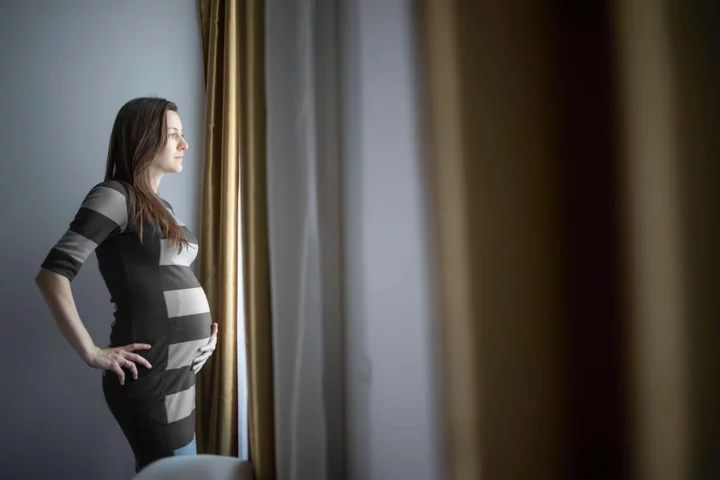
Nearly three-quarters of mothers feel invisible, study suggests
Most women feel ‘invisible’ and ‘unappreciated’ when they become mothers, new research has revealed. Instead of ‘having it all’, 72% of mums feel invisible and 93% feel unappreciated, unacknowledged or unseen once they’ve had children. Another 93% said that since having a child, their identity has been reduced to only being a mother. And the weight of expectation is huge, too, with 97% of mums questioned in the survey by the online motherhood community Peanut saying pressure is put on them to ‘do it all and be it all’. Plus, 94% believe they’re expected to put themselves last and self-sacrifice for their families, partners, jobs, and other responsibilities, so they can achieve what they feel is required of them. Nearly half of mums (46%) said they don’t feel supported by the healthcare system after giving birth, and 70% expected more support from society in general. As a result of this lack of support and invisibility, most women surveyed (95%) agreed there’s an impact on their mental health and wellbeing, with 86% having experienced anxiety, 82% feeling stressed, burned out or exhausted, and 80% feeling overwhelmed, or lonely and isolated. Other strong feelings identified by mums included irritability (78%), loss of identity (65%), feeling judged (66%), feeling unsupported (64%), guilt (63%), depression (55%), resentment (54%), worthlessness (50%), and neglect (24%). Women attributed the things making them feel invisible to unfair division of labour in the home, trying to juggle a career and childcare, lack of empathy and understanding from both family and everyone else, gaps in healthcare and mental health support, identity and independence struggles, hiding the pain of pregnancy loss, and general pressure from healthcare, education institutions and the media. Commenting on the findings, psychologist Dr Rachel Goldman said: “The invisibility of motherhood is a stark reality many face. The journey begins with frequent visits to healthcare providers, but once the child arrives, there’s a sudden gap, creating a sense of abandonment. Women grapple with overwhelming feelings of exhaustion and stress, only to confront rushed appointments where healthcare professionals don’t have time to adequately dive into concerns.” As a result of the research, Peanut has launched an Invisible Mothers campaign, featuring a State of Invisibility report, to draw attention to mums’ struggles and highlight ways to make them more visible and better supported. The report found mums think more empathy and gender equality will help them feel more visible, with 82% calling for flexible, family-friendly workplaces, 77% wanting equal and extended leave for both parents, and 71% saying an equal share of parenting tasks would help. Additional measures that will help mums, says Peanut, include more public toilets having changing facilities, additional resources for mental health support, support groups for both parents, and educational initiatives about gender stereotypes. The report also identified the most common unwanted questions that contribute to mothers’ feelings of invisibility, with alternative suggestions that women say they would prefer to hear. So instead of asking ‘How’s the baby?’, Peanut suggests mums are asked ‘How are you really – mentally, emotionally and physically?’, and rather than ‘Was the pregnancy planned?’, try ‘Are you excited?’, and change ‘How do you do it all?’ to ‘How’s the mental load?’. Goldman added: “It doesn’t take grand gestures to offer support. A genuine ‘how are you’ or ‘thinking of you’ can significantly shift perceptions, signalling to someone that they matter. Small changes or actions, like compassionate conversations, can have profound impacts. “By acknowledging and addressing these issues, we can begin to truly support motherhood.” Read More The best ways to work-out in 22 minutes – as study finds this is magic number for offsetting ‘negative impact of sitting’ What crops will we be growing in the future, as climate change alters the landscape? As Rebecca Adlington shares heart-breaking miscarriage news: How to support others experiencing baby loss What you need to know about new research into treating cervical cancer How to do Halloween make up and still take care of your skin Which houseplants best suit your star sign?
2023-10-25 19:28
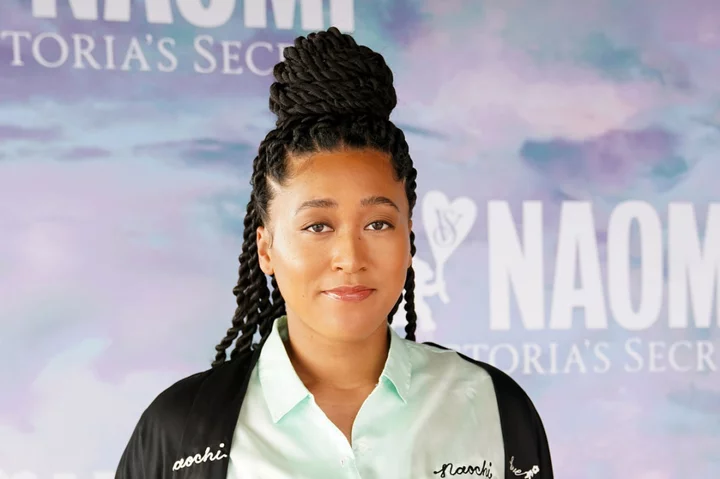
Naomi Osaka opens up about fighting thoughts that she ‘won’t be a good mom’
Naomi Osaka has reflected on battling self-doubt and difficult thoughts as a new mother. The four-time Grand Slam tennis champion gave birth to her first child, a daughter named Shai, in July 2023. She shares Shai with her partner, rapper Cordae. On Sunday (22 October), Osaka shared some insights into her personal life with her fans to mark turning 26 earlier in the week. In an extended post on X, formerly Twitter, the Japanese athlete wrote about taking stock of her life so far, and wondering whether or not she’s taken the “correct path”. “I often try to retrace my steps to figure out how did I end up here,” she explained. “I know I say this often but I truly still feel like that kid playing on public courts in Queens, NY. “Randomly I wonder if I’m doing OK, is there a correct path to take in life or have I veered off onto the scenic route for a little bit? However, I’ve now come into the mindset that I can only keep moving forward and everything that will be, will be.” Osaka then shared her specific feelings of worry about her capabilities as a parent. “Something I had to conquer recently is fighting the thought that I won’t be a good mom,” she wrote. “So many doubts raced through my head I had to swat them away like mosquitoes. “Looking into Shai’s eyes and holding her I always think, ‘Wow this little person depends on me so much, I have to do better.’ It’s such a strange feeling watching your kid grow, you blink and they’re double the size in a few months. “Gratefulness reminds me to breathe and take in the little things (and the big ones).” Osaka ended her post by expressing her gratitude for having “another year” and for the people who support her. Osaka’s last competitive match was at the Toray Pan Pacific Open in September 2022, before she withdrew from the tournament due to abdominal pain. She announced her pregnancy in January 2023 shortly after stating that she wouldn’t be competing in the Australian Open later that month. Last month, Osaka spoke about her year away from playing tennis and mentioned how other female tennis stars’ longevity has influenced her desire to keep competing. “The whole process, it felt long and short at the same time,” she told the American sports news channel ESPN. “When I stepped away, it was Tokyo, that was the last tournament I played. I just remember watching the Australian Open and being very devastated, because I’ve never missed an Australian Open. “When I was watching Serena and Venus [Williams], I was thinking, ‘Ah, I probably no way will ever play at their age’, but sitting here, I’m like, ‘You know what? I might do that actually.’” Read More ‘Truly heartbroken’ Rebecca Adlington reveals late miscarriage Should we stop putting the clocks back? What the experts think ‘I lost over a stone on Ozempic, but now it’s run out what am I to do?’ ‘Truly heartbroken’ Rebecca Adlington reveals late miscarriage Should we stop putting the clocks back? What the experts think ‘I lost over a stone on Ozempic, but now it’s run out what am I to do?’
2023-10-23 17:29

Rebecca Adlington says she’s ‘truly heartbroken’ after late miscarriage
Rebecca Adlington has said she’s “truly heartbroken” as the British swimmer announced she had a miscarriage at 20 weeks pregnant. Adlington, 34, said she went for her 20-week scan earlier this week and was informed her baby had no heartbeat, adding she and husband Andy Parsons, 31, “will forever love and remember” their daughter. She wrote on Instagram: “I don’t really have the words right now but unfortunately we went for our 20-week scan this week and they discovered no heart beat [sic].” Adlington added that she gave birth to the baby – who the couple named Harper – on Friday (20 October) and “we held her, and had time with her”. The two-time Olympic gold medallist thanked the staff at the Wythenshaw hospital in Manchester for their “incredible” kindness and care, and Parsons for his “selfless support, love, and help”. “I don’t have the strength or words right now and don’t feel ready to share this news,” Adlington continued. “However, I can’t pretend to be okay or fake a smile. I can’t have people ask me how pregnancy is or when I am due as I still look pregnant. I don’t have the strength to tell this news individually.” The former I’m a Celebrity contestant announced she was pregnant on 1 October, sharing a photograph of her family taken at Disneyland Paris. Former track athletes Dame Jessica Ennis-Hill and Greg Rutherford, ex-hockey player Sam Quek, former swim champion Adam Peaty, and presenters Angellica Bell and Helen Skelton shared messages of support in the comments section of Adlington’s Instagram post. Ennis-Hill wrote: “Oh Becky I’m sending you and your family so much love. I’m so sorry xxxx.” Rutherford said: “Sending love to you. So sorry to read this Becky xx.” Quek also wrote: “Becky, I know no words will ease the pain… my entire heart is with you all.” Peaty’s message read: “I’m so sorry to hear this, my prayers are with you all” alongside a heart and praying hand emoji. Adlington previously revealed she had a miscarriage 12 weeks into her pregnancy last August, sharing the news on Instagram at the time. The mother-of-two wrote: “It’s such a devastating time but important in times like these we remember we aren’t alone and have so much support. “Long way to go but I’m in the right place,” she added. “Once I’m able to leave hospital I’m extremely grateful I get to go home and give my 2 little ones the best hugs!” Adlington, who has also appeared on Celebrity MasterChef, shares one son, Albie, two, with Parsons. She also has an eight-year-old daughter, Summer, from her first marriage to swimmer and personal trainer Harry Needs. You can contact the Miscarriage Association helpline on 01924 200799 or email the charity at info@miscarriageassociation.org.uk. The helpline is open from 9am to 4pm Monday to Friday. For more information, help and support regarding pregnancy loss, you can contact Tommy’s on 0800 0147 800. To contact Petals to enquire about the charity’s counselling services, you can call 0300 688 0068 or email counselling@petalscharity.org. Read More Should we stop putting the clocks back? What the experts think ‘I lost over a stone on Ozempic, but now it’s run out what am I to do?’ Consistent lack of sleep may increase risk of future depressive symptoms – study Should we stop putting the clocks back? What the experts think ‘I lost over a stone on Ozempic, but now it’s run out what am I to do?’ Consistent lack of sleep may increase risk of future depressive symptoms – study
2023-10-23 15:22

Will Poulter says acting offered ‘escape’ from mental health issues
Will Poulter has suggested his acting career meant he didn’t address his mental health “as early as I might have”. The 30-year-old British star has been acting since he was a child, first appearing in the 2007 film Son Of Rambow. “I think for me, performance offered me something of an escape,” Poulter told the PA news agency. “For a while, maybe I wasn’t addressing some of my mental health issues as early as I might have, because I was losing myself in my work a little bit, and that’s probably quite relatable to a lot of people, whether they’re actors or not. “So it’s been a kind of blessing and a curse in that respect, if I’m being completely honest, but I’m obviously very, very grateful to have found something that ultimately I’m very passionate about and I love doing, so it nets out as being a positive and I’m grateful for it.” Poulter, who has been diagnosed with generalised anxiety disorder, depression and OCD, has teamed up with Movember for its 20th anniversary to raise funds and awareness of testicular cancer, prostate cancer, mental health and suicide prevention. He said his experiences with mental health have “textured my experience in a number of different ways”, and highlighted the importance of opening up. “I’ve found, certainly, that having the opportunity to talk in a kind of no-holds-barred fashion, and not to feel the kind of brunt of the stigma, has been really beneficial,” the Maze Runner star said. “I think, to a large extent, a problem shared is a problem halved… By talking to people more openly about the subject of mental health, you quickly come into contact with the idea that it’s often people that you wouldn’t necessarily assume are suffering from something. “Everyone has a mental health to consider, everyone’s dealing with something to some extent.” There's still quite an asphyxiating stigma around mental health Will Poulter He said he’s been “liberated to talk about my mental health relatively freely”, but accepted that isn’t necessarily the case for everyone. “Certainly on a societal level, there’s still quite an asphyxiating stigma around mental health. I think what Movember have long done is helped deconstruct that stigma and create a more hospitable environment for people to be able to talk about mental health.” He suggested that mental health is “especially stigmatised” in the male community. According to the Office for National Statistics (ONS), around three-quarters (74%) of the suicides registered in England and Wales in 2021 were men. It’s the leading cause of death in men aged 20-34. Movember also said it’s believed one in five (20%) of men in the UK aged between 16-29 experienced moderate to severe depressive symptoms in 2023. The charity took on mental health and suicide prevention as a cause area in 2006, focusing on prevention, early intervention and health promotion focusing around men. Poulter, who is teaming up with Movember for the second year in a row, said he’s “very fortunate to have a lot of people in my life, both men and women, who contribute to that conversation [around mental health] very openly”, but accepted there’s still a way to go. “It often requires a lot of courage on behalf of the person who’s dealing with a mental health issue to speak up. What I think we have to work towards is a destigmatised society, so it isn’t such a courageous thing to do.” He continued: “When you break it down, ultimately we’re talking about an organ, or talking about taking care of your body. When you think about it like that, to think there’s so much stigmatisation around talking about taking care of the most vital organ in your body, it seems kind of bizarre – but that is the situation we find ourselves in.” Poulter said he always tries to “think about it in those terms”, and talk about it like that with “people in my own household and those nearest and dearest to me”. He added: “It’s always fascinated me that physical health, largely speaking, doesn’t have the same stigma surrounding it. People talk about physical health more freely than they do mental health.” Movember is an annual event where people grow moustaches during the month of November to raise awareness of a variety of men’s issues, and 2023 marks 20 years since the charity was founded in a pub in Melbourne, Australia, by two friends. Portrait photographer Rankin has teamed up with Movember to photograph people including Poulter, ex-Arsenal footballer Jermaine Pennant, TV presenters Laura Whitmore and Iain Stirling, and members of boyband Busted. Poulter is an ambassador of Movember, united to take on mental health, suicide, prostate and testicular cancers. See Movember.com. For mental health support, contact the Samaritans on 116 123, email them at jo@samaritans.org, or visit samaritans.org to find your nearest branch. Read More 5 of the hottest new perfume launches for autumn/winter Consistent lack of sleep may increase risk of future depressive symptoms – study World Osteoporosis Day: The risk factors and early warning signs everyone needs to know about How to support a child with a stammer From colourful gowns to drones, these wedding trends are set take over 2024 Call The Midwife ‘should come with a health warning’
2023-10-20 17:47
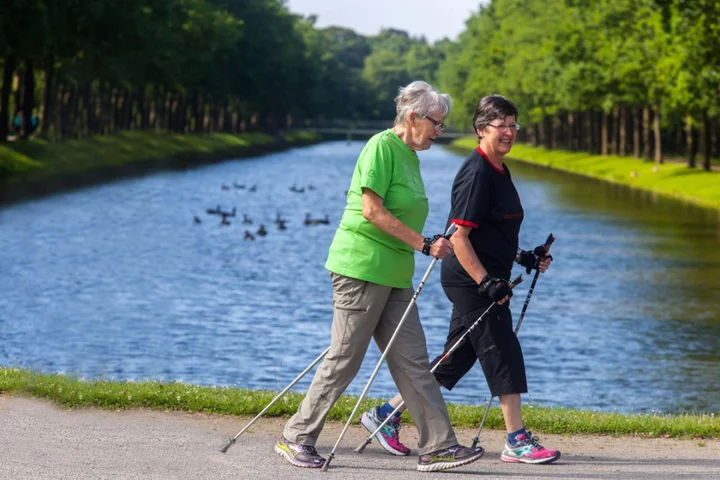
World Osteoporosis Day: The risk factors and early warning signs everyone needs to know about
October 20 marks World Osteoporosis Day – but despite being a relatively common condition, many people are unaware they’re at risk. According to Age UK, osteoporosis – which is associated with weakened bones and often referred to as a ‘silent disease’, as symptoms can creep up on people – affects approximately three million people in the UK. Yet, many only find out they have it when they break a bone. “[Osteoporosis] is a condition characterised by weakened bones, making them more prone to fractures,” explains Dr Zulqarnain Shah, a medical director at SSP Health. “It occurs when the body loses too much bone or makes too little bone, or both. Diagnosis of osteoporosis typically involves a combination of medical history, physical examination, and specialised tests, such as bone mineral density scans,” Shah adds. Could I be at risk of osteoporosis? According to Age UK, around half of women over 50, and around one in nine men in the same age group, will experience a fracture due to osteoporosis. However, several risk factors contribute to the development of the condition, meaning some people may be more likely to get it. “These include menopause, low calcium and vitamin D intake during younger years, family history, a sedentary lifestyle, smoking, excessive alcohol consumption, and certain medications,” explains Shah. “While it may not be possible to prevent all cases of osteoporosis, adopting a healthy lifestyle with regular weight-bearing exercise, a balanced diet rich in calcium and vitamin D, and avoiding smoking and excessive alcohol intake can help reduce the risk.” Being aware of osteoporosis can be particularly important if you have a family history. “A family history of osteoporosis or fragility fractures can indicate an increased risk,” explains Dr Elise Dallas, GP at The London General Practice. Other things that increase risk include having a history of “rheumatoid arthritis, low levels of oestrogen due to early menopause, anorexia nervosa or Turner’s syndrome, hyperthyroidism, parathyroid disease, Crohn’s and coeliac disease, and conditions that cause long periods of immobility”, adds Dallas. What are the symptoms of osteoporosis? When you have osteoporosis, you may suffer from “increased fracture risk, height loss, and chronic pain”, says Shah. “Fractures associated with osteoporosis are known as ‘fragility fractures’, which can occur with minimal impact. Fractures commonly occur in the spine, hip, and wrist, and can lead to significant pain, disability, and reduced quality of life,” he explains. Are there any early warning signs? Shah says: “Early signs of osteoporosis may not be apparent until a fracture occurs. However, a precursor condition called osteopenia may be detected through scans before the onset of full-blown osteoporosis.” Osteopenia is where the density of the bones decreases, but not thoroughly enough to be classed as osteoporosis. There are no real symptoms however, so it can only be detected with scans. The good news is, lifestyle measures and sometimes treatment can help prevent it getting worse. How is osteoporosis treated? Treatment for osteoporosis is mostly aimed at “strengthening bones and preventing fractures”, says Shah. “This typically involves a combination of lifestyle modifications, such as exercise and dietary changes, along with medication. “Medications may include calcium, vitamin D and bisphosphonates, hormone therapy for postmenopausal women, selective oestrogen receptor modulators (SERMs), and other options. “SERMS help manage the way oestrogen interacts with your body and has a similar impact on osteoporosis as hormone replacement therapy, to help mitigate the impacts of hormones on osteoporosis,” Shah explains. “Regular monitoring and adherence to treatment plans can help slow down or stop the progression of osteoporosis. A bone density scan – also known as a DEXA scan – can help monitor the progress of a condition and may be done at three to five-year intervals to assess progress. “Once a patient has been on bisphosphonates for five years, they may go on a ‘pill holiday’ for a couple of years, though the benefits of taking bisphosphonates continue long after the medication is stopped.” Getting support and advice to manage any pain and mobility challenges and reduce the risk of falls and injuries can also be very important for people living with osteoporosis, along with finding ways to stay active. If you are worried about your bones and osteoporosis risk you can reach out to charities like the Royal Osteoporosis Society and find out about your risk level. Read More How to support a child with a stammer From colourful gowns to drones, these wedding trends are set take over 2024 Call The Midwife ‘should come with a health warning’ Halloween: 10 wicked ways to kit out your haunted house Black magic: Go back to black this season with the catwalk-inspired trend How to prep your home for when the clocks go back
2023-10-20 15:25

How to support a child with a stammer
For people with a stammer, it can be hard to deal with, but it’s made worse by the fact that understanding of the condition amongst the general public is low. The speech problem usually starts in childhood, between the ages of around two and five years old, affecting around 8% of children and 2% of adults – that’s more than 1.3 million people in the UK. International Stammering Awareness Day (October 22) aims to destigmatise stammering and promote understanding and support for people who do have it, including advice for parents about how they can help affected children. “There’s a lot of stigma around stammering in society – even from an early age, children may be teased or bullied, and adults may tell them to speak properly,” says Catherine Woolley, children and families programme lead at STAMMA (the British Stammering Association). “Children who stammer sometimes feel embarrassed or worried about their speech and try to hide it. They might start to speak less or change words they want to say to ones which are easier to produce. “How you respond to your child can affect how they feel about their talking. It’s common for parents to worry about stammering, and if this is you, you can seek support to help you feel comfortable around your child’s stammering.” Woolley points out that, contrary to popular belief, stammering isn’t caused by anxiety or stress, and there’s no evidence that people who stammer are less intelligent than fluent speakers. “Research suggests stammering is neurological, which means there are subtle differences in the way the brains of people who stammer work,” she explains. “This means it belongs to the same group of neurodiverse conditions as ADHD, autism and dyslexia.” The condition is often hereditary, with about 60% of people who stammer having another family member who stammers, and while there’s no specific cure, Woolley says there are many different techniques and approaches that can increase people’s fluency in certain situations, although they may not work for everyone. “There isn’t one treatment which can miraculously make all people stop stammering,” she stresses. “Everyone’s stammer is unique, as is the way they want to manage their speech.” But there’s no doubt, she says, that parents can help their children deal with stammering, and make them feel more comfortable. 1. Value your child’s stammered voice “It’s simply the way they talk,” says Woolley. “What’s important is what they say and not the way they say it.” 2. Be patient Although it can obviously take more time for a child who stammers to say something, it’s important for parents and the rest of the family not to rush them. “Give them time to say what they want, and model this to their siblings and other family members,” she adds. 3. Don’t finish their words or sentences Woolley says that while it can be tempting to finish your child’s words or sentences for them, especially if you can see them struggling, it’s important to resist this urge to help. “It can be disempowering and embarrassing if you speak over them,” explains Woolley, “not to mention frustrating if your guess is wrong and they have to start all over again.” 4, Slow down yourself Rather than telling your child to speed up, slow down your own speech to reduce any time pressure they may feel. 5. Don’t show your own anxietyEven if you feel anxious when your child is stammering, try not to show it, advises Woolley, who suggests maintaining natural eye contact and remaining calm. “It can be uncomfortable listening to someone who stammers, but think how they feel. Try and maintain eye contact even if you feel awkward, as looking away can make them feel awkward too, or think you’ve lost interest in what they’re saying. Keep looking at them and give the occasional encouraging head nod to show you’re interested.” 6. Try not to be negative Woolley says it can be important to describe stammering using neutral language instead of negative references. So, for example, say, ‘He’s stammered more this week’, rather than, ‘His speech has been bad’. 7. Seek help Parents who are worried about their child’s talking or would like some help should contact their local NHS speech and language therapy department to talk through their concerns. In addition, STAMMA offers free Parent2Parent peer support groups run by parents of children who stammer, and workshops for such parents, plus a helpline (0808 802 0002) and a webchat service. Read More From colourful gowns to drones, these wedding trends are set take over 2024 Call The Midwife ‘should come with a health warning’ Halloween: 10 wicked ways to kit out your haunted house Black magic: Go back to black this season with the catwalk-inspired trend How to prep your home for when the clocks go back Menopause campaigner Mariella Frostrup: ‘I look forward to a future where women gradually stop feeling so ashamed’
2023-10-20 14:56

Hitting snooze button can actually benefit brain sometimes, study suggests
Hitting the snooze button on the alarm clock once in a while might actually support the brain’s process of waking from deep sleep, according to a new study. People sometimes want to go right back to sleep even after the alarm goes off in the morning, using the snooze button in clocks and cell phones. Decades of previous research suggested that hitting snooze can have negative effects, both on sleep and the brain’s ability to wake up, but until now there hasn’t been any direct evidence of this, say scientists. The new study, published in the Journal of Sleep Research, assessed how common snoozing is and what effects this behaviour has on sleep, sleepiness, mood, and the brain’s cognitive abilities. Researchers found that those who snooze on an average sleep slightly shorter and feel more drowsy in the morning compared to those who never snooze. But they also saw that there were no negative effects of snoozing on the release of the stress hormone cortisol, mood, or sleep quality throughout the night. In the study, 1732 individuals answered questions about their morning habits, including how often they hit the snooze button with many – especially young adults – reporting that they use the alarm feature regularly. The most common reason for snoozing, according to participants, is feeling too tired to get out of bed when the alarm goes off. In another small follow-up experiment, 31 regular snoozers spent two nights in a sleep lab in order to measure their sleep in more detail. On one of the mornings, they were allowed to snooze for 30 minutes, and on the other, they had to get up right when the alarm went off. While in the first case, participants’ sleep was disturbed during the half hour of snoozing, most of them still got more than 20 minutes of sleep – meaning that their total night’s sleep was not affected much. In the snooze condition, no one had to wake up suddenly from deep sleep, and the snoozers performed a bit better on cognitive tests right upon waking. There were also no clear effects of snoozing on mood, sleepiness, or the amount of cortisol in the saliva. The results hint that half an hour of snoozing may not have negative effects on night sleep and could have some positive effects like a decreased likelihood of waking from deep sleep. However, researchers caution that the second experiment was small and only included people who are regular snoozers who find it easy to go back to sleep after each alarm. They say snoozing is most likely not for everyone. Jennifer Kanaan from the University of Connecticut in the US, who is another sleep scientist unrelated to the study, said the latest findings should be interpreted with caution as it could send the wrong message to people. “If you’re coming in and out of sleep for 30 minutes, after the alarm goes off the first time, you’re costing yourself 30 minutes of uninterrupted, quality, restorative sleep,” Dr Kanaan said in a statement. Instead of trying to figure out how to manipulate our alarm clocks, she says people should make a consistent good night’s sleep a greater priority and be less reliant on snooze buttons. “Simply put, instead of hitting the snooze button they should get more sleep,” Dr Kanaan said. Read More Study reveals why millions of women wake up at 3.29am Consistent lack of sleep may increase risk of future depressive symptoms – study Breakthrough study allows scientists to communicate with people as they sleep How to support a child with a stammer ‘I lost nearly a stone on Ozempic, but now it’s run out what am I to do?’ Miriam Margolyes now has part of a cow’s heart as she opens up about health
2023-10-20 14:52
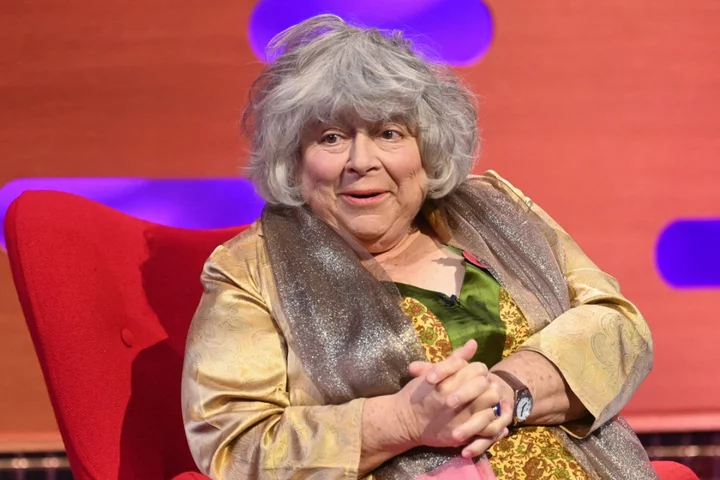
Miriam Margolyes now has part of a cow’s heart as she opens up about health after surgery
Miriam Margolyes has shared a health update after heart surgery, revealing that she now has part of a cow’s heart. Back in May, the Harry Potter actor underwent a minimally invasive procedure called a Transcatheter Aortic Valve Implantation (TAVI) to replace a narrow aortic valve after it fails to open properly. Appearing on the Table Manners podcast, Margolyes, 82, discussed the heart operation with hosts Jessie Ware and her mother, Lennie. “I’ve got a cow’s heart,” Margolyes revealed. “Well, not the whole heart. I’ve had an aortic valve replaced by a cow’s aortic valve.” Jessie asked if that was “common”, with Margolyes joking: “I think it’s rather refined, actually… I don’t know how common it is, I’d never heard of that operation. But it saves you from having open heart surgery, which would be infinitely more invasive.” Further discussing the surgery, Margolyes explained: “They made two little holes in your groin, one in each groin. and then they shoved this thing through. And I don’t know how they pull it up but they sort of pull it up with strings, into your heart. “And then when it comes to the point when it’s in your heart, they pull a little string and it goes pow! And lo and behold, your artery or your aortic valve is shoved unceremoniously to the side, and the cow’s aortic valve says, ‘Moo, I’m here.’ It’s rather amazing.” Margolyes also shared that she would “probably” use a wheelchair soon due to her bad back, but had “just sort of accepted” that it was going to be necessary. On her new fandom and being seen as a “national treasure”, thanks to her outspoken nature, she added: “It’s lovely to hear that you like me and you approve of me. But I truly am a little old lady. Trying to make a living. Trying to keep going.” Last month, the actor released her new memoir, titled Oh Miriam: Stories from an Extraordinary Life. In the book, which was full to the brim with revelations, Margolyes wrote that her current state of disability meant that she now is mostly unable to perform on the theatre. Describing herself as “semi-crippled”, she wrote that “usually that means you have to stop”. “I don’t think I can do theatre again unless I’m playing a character similarly disabled,” she said. “I know Maggie [Smith] and Eileen [Atkins] and Judi [Dench] and Vanessa [Redgrave] still tread the boards, and they’re older than me – but they’re fitter, b***** it, and good luck to them!” Read More Tilda Swinton, Steve Coogan and Miriam Margolyes among 2,000 artists calling for Gaza ceasefire 11 biggest revelations from Miriam Margolyes’ hilarious new memoir Miriam Margolyes says Steve Martin was ‘horrid’ on film set: ‘Perhaps he was method acting’ Call The Midwife ‘should come with a health warning’ My kids don’t have sushi in their packed lunches – does it make me a bad mum? Adele reveals she’s three months sober after being ‘borderline alcoholic’ in her 20s
2023-10-19 17:57
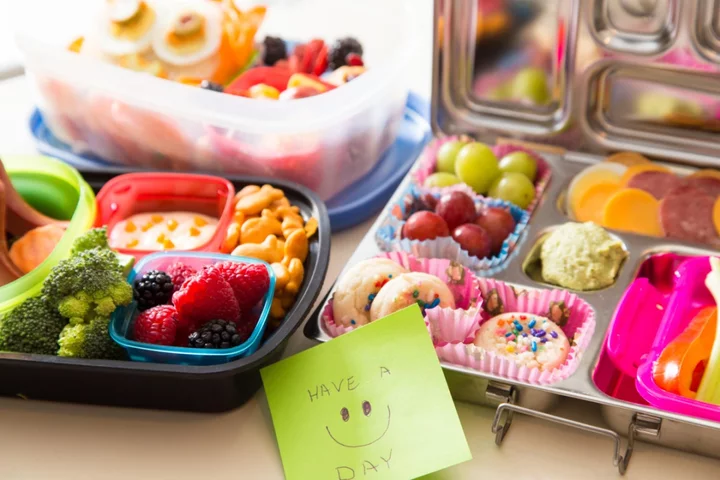
My kids don’t have sushi in their packed lunches – does it make me a bad mother?
I’m standing outside my local cafe in west London, looking bedraggled as I’ve been up since 6.45am making the dreaded school packed lunch. It’s nothing exotic – margherita pizza for Lola, who is a fussy eater, and plain pasta with cheddar cheese and corn on the cob for Liberty. There were all the snacks to pack, too – sadly, no chunks of carrot, just Pom-Bears and breadsticks. I am buying a croissant to add to one of the lunch boxes when I bump into the mum of one of my daughter’s friends. “Oh darling,” she tells me, “it’s all ‘white food’. Not good.” I shrug my shoulders knowingly, then stupidly ask her what’s in her kids’ packed lunches. “Sushi bento box,” comes her instant reply. “Crudites and organic hummus. Japanese panda crackers. Seaweed crackers. Dim sum. Oh, and sandwiches cut into little shapes – I do hearts and stars.” Right. That’s a good start to my morning; I now feel totally inadequate. When it comes to my children, I am a slave to the packed lunch. But gone are the days of stuffing a hard-boiled egg, a jam sandwich or processed cheese triangles into a box – as was the case when I was a child. Even apples have been voted a prehistoric lunchbox item by 17 per cent of parents. Instead, packed lunches are now a status symbol. The actor Hilary Duff, for instance, gives her son caviar for a snack – and it’s not that unusual. One in 10 parents (9 per cent) choose sushi and, according to a recent survey by Amazon Fresh, 26 per cent of parents take a photo of their children’s packed lunch for Instagram. A third (33 per cent) have also admitted they’ve taken a sneak peek inside another child’s lunchbox – and believe me, it’s often to silently snack-shame another parent. I can’t help but wonder if food and snacks are a kind of modern litmus test of parenting. But does it really make you a better parent if you give your child home-cooked wild keta salmon and wholemeal rice in a thermal container for lunch? The playground politics of packed lunches are complex. Parents are constantly criticised for sending inappropriate lunches to school. The TV chef Jamie Oliver once said unhealthy packed lunches are tantamount to child abuse. At the other extreme, parents are finding the time to stamp cucumbers with flowers and dice dried herbs into them for their kid’s bento boxes – then post them online. There seems to be no middle ground. Christina (not her real name) is a 40-year-old PA and tablescaping specialist whose child attends a prep school in west London’s Notting Hill. She makes all of her daughter’s packed lunches from scratch, and it’s always organic produce. “I always wanted to go that extra mile,” she tells me. “My motivation to do this was never to be ‘Queen Bee mum’ – it was to make my daughter happy and proud of me.” The “presentation” and “the taste” of the packed lunches, she says, is “super important” – to such an extent that it needs to be “Instagram-worthy” and “fun” in order to encourage her daughter to eat healthily. One of her lunch box specialities, she adds, is mini American hot dogs “decorated with a little flag and a drizzle of ketchup”. “I know it is always going to be flagged by other mothers because the school is very competitive,” she continues. “This dish goes around the mums like wildfire because mums always want to outdo other mums.” If I put out a post saying how much fibre children should be having, I get people replying saying that ‘it’s unrealistic’ and ‘we can’t do that as well as everything else’ when it comes to kids’ foods. It ends up with parents pitting themselves off against one another with food Charlotte Stirling-Reed, child and baby nutrionist While school playground rivalry among parents used to be about pigtails and bows in your children’s hair, Christina says, now it’s about lunch and snacks. “Kids have a much more sophisticated palate,” she explains. “They’re exposed to a lot more than a ham and cheese sandwich. The playing field has widened, and the bar has been set higher due to social media, and Deliveroo and Uber Eats – everything has become more instantaneous.” For other parents, it’s about making a packed lunch as wholesome as possible – something my children would scoff at. Ella Mills, the founder of the plant-based food brand Deliciously Ella, tells me she has found “batch cooking” easiest for her daughter’s packed lunches at nursery. “It’s a real rush getting everyone dressed, ready and out of the door each morning,” she says. “Plus, thinking of something to cook at 7am that’s got no nuts, no sesame in it [due to possible nut allergies], that I’ll know they’ll eat, and that doesn’t take a little while to make. So I make huge batches of veggie bolognese, bean chilli or sweet potato and chickpea stews plus big batches of grains, then simply heat a portion up and pop it in a thermos. Something that’s pre-made makes a world of difference.” Other parents call in the professionals. Chef Meryem Korkut Avci of Mary’s Mobile Chef Services does “meal preps” for elite customers in west and north London. She sends over an ingredients list and will then come to your home once a week and cook for the whole family – a two-hour session is £120 for six dishes (on the seventh day, her clients usually get a takeaway). For packed lunches, she says gluten-free muffins are popular. “Also egg or chicken fried rice, chilli con carne with tortilla, little mini puff pastry rolls with cheese – or sausage rolls.” She’ll even wash up – and says clients use her because “they don’t have time” or are “bored of their own food”. Dr Megan Rossi, a gut health scientist, bestselling author and founder of the website The Gut Health Doctor and The Gut Health Clinic in London, says an ideal packed lunch would contain something from each of the super-six plant groups: “Legumes (such as chickpeas), vegetables, whole grains (such as oats and barley), fruit, nuts and seeds and herbs and spices. Hitting all these is a tricky one but for optimal health, the goal is for them to have at least one from each of these most days. It’s a great target to have in mind!” She advises “hiding legumes and whole grains in sweet treats like black bean brownies with porridge oats,” and says that “while not a long-term strategy to keep plants a secret, it can help build some confidence and comfort with those plants (as well as training childrens’ taste buds) for you to reveal when the time is right.” For chocolate lovers – like my daughter, Lola – Dr Rossi also suggests “making your own chocolate bars with dried fruits, popcorn, seeds and nuts included for extra dietary fibres and a more satiating treat”. I personally can’t see how I would fit that into my schedule. But for many parents healthy eating is a full-time job. Children may need to be offered a specific food “around 10 times” before they accept it, according to research, while Dr Rossi adds that it means nothing to a child if you merely tell them food is healthy or unhealthy. “Try explaining to them from a young age about the importance of their gut microbes,” she says. “Tell them they need to feed the little pet bugs in their tummy with broccoli, for instance, to help keep them strong.” I often feel ashamed that Lola is a fussy eater – though I find solace in the fact that her younger sister isn’t. Dr Rossi claims that what mums-to-be eat during pregnancy may also affect the kind of food your child will have a taste for. “That could play a part with fussing eating,” she says, but adds that she’s not keen on “mum guilt”: “Pregnancy is hard enough without the added pressure of nutrition.” Charlotte Sterling-Reed, “The Baby and Child Nutritionist”, runs a fussy eater course, and assures me that “parents are not bad parents if they are struggling with a fussy eater at home”. She says she is currently witnessing a backlash from “defensive parents” who are fed up with being told to live up to the “ideal” of being a perfect parent. “If I put out a post saying how much fibre children should be having, I get people replying saying that ‘it’s unrealistic’ and ‘we can’t do that as well as everything else’ when it comes to kids’ foods,” she says. “It ends up with parents pitting themselves off against one another with food.” An extravagant lunchbox is also not realistic for the majority of parents, she adds, “whether working or not, and nor should it be – there is a way to find a balance”. She says that a middle ground is possible. “As parents, [we can] pick something that is balanced but that also works for the family situation. This constant comparison between two extremes on social media makes us feel like we are failing in multiple aspects of parenting.” I don’t think I’m ever going to be posting my kids packed lunches on Instagram. I also know that sliced pepper fingers won’t get eaten even if I arrange them in the shape of a smiley face. More than anything though, I won’t feel guilty about my kids’ food habits any more, or the lengths I sometimes go to to get them to eat healthy – I once told my daughters that if they didn’t drink their freshly squeezed orange juice, their legs would fall off. And, you know what, it worked! Read More Keir Starmer is keeping his children out of the public eye – but that won’t stop them being privileged I’m a jellyfish parent – my run-in with a tiger mum was terrifying Kate Moss credits her stress-free life to ‘moonbathing’ – can eccentric wellness regimes help me too? Vasectomy and British men in their twenties: ‘Young, none and done’ Why taking a mental health day could be bad… for your mental health What the world’s happiest children tell us about where Britain is going wrong
2023-10-19 13:53
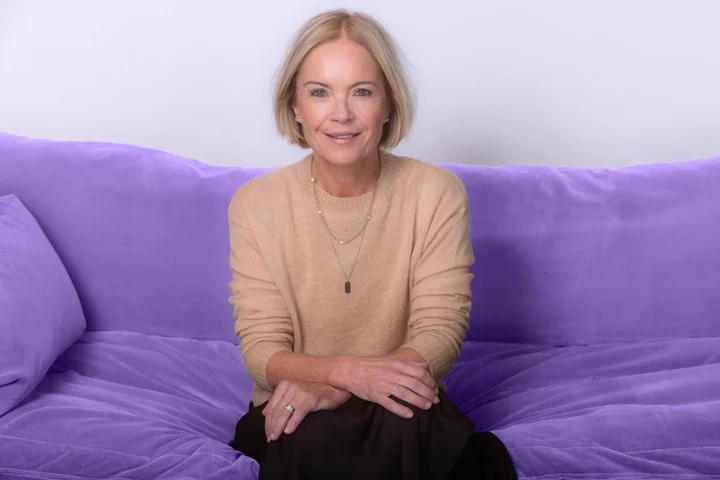
Menopause campaigner Mariella Frostrup: ‘I look forward to a future where women gradually stop feeling so ashamed’
Mariella Frostrup said she looks forward to a future where women “stop feeling so ashamed” of their bodies. The broadcaster, author and former Observer agony aunt, who has been known for her work as a menopause campaigner over recent years, also said “the world is not changing fast enough” when it comes to awareness and support for women’s health experiences. “[There has been] centuries of misinformation and misunderstanding that’s gone on around menopause. You have to look to history to see where we’ve ended up – and then in a more optimistic vein, look forward to a future where women gradually stop feeling so ashamed,” Frostrup, 60, told the PA news agency. “I mean, everything to do with women’s bodies has been a source of shame. I remember as a teenager, I was hiding my Tampax underneath cereal packets when I went to the shops to buy them, because I was so ashamed of the fact I was having a period. “You look at young people today, and I just love it when young women will announce to a roomful of people, ‘Oh, I’m on my period’. That is a great indication of the sort of liberation we need to experience around our bodies.” Frostrup, who wrote an advice column for the Observer for a decade and joined Times Radio as a presenter in 2020, co-authored the 2021 book Cracking The Menopause and is chair of the Menopause Mandate collective, whose aim is to ‘revolutionise’ the support and advice women receive through their midlife health challenges and beyond. She has now teamed up with Always Discreet on a campaign highlighting bladder leakage. Despite affecting around half of women, many (50%) are unaware this can be a common symptom of menopause, according to a survey by the brand. Of those who do experience bladder leaks during menopause, the poll (of 1,200 women) also found more than 50% are not sure they would want to discuss it with anyone, with some (19%) citing embarrassment as the reason. Frostrup, who has a teenage son and daughter with husband, lawyer Jason McCue, is keen to highlight, however, that bladder leakage is often one of the menopause symptoms women can effectively self-manage – through pelvic floor exercise. These are simple exercises that involve squeezing the muscles around the pelvis, bladder and vaginal area. The campaign sees Frostrup and TV medic Dr Philippa Kaye encouraging women to ‘Squeeze the Day’ every day, with daily pelvic floor exercises. “It’s something a lot of women live with, a lot of women don’t talk about, and a lot of women feel ashamed about – but it is actually something you can tackle, when there’s so many other symptoms women struggle to obtain treatment for,” said Frostrup. “Here’s something you can personally take agency of, and do your pelvic floor exercises. “My mum, weirdly – and I have no idea why, because I was a teenager in the Seventies – was very vocal about the need to do pelvic floor exercises. I think probably back then, it was more to do with childbirth and making that a bit easier in the future, but I was lucky in a way, as it’s something I’ve had an understanding about – although I’m still practicing how to do them without raising my eyebrows,” she added, laughing. “With so many of these things, you need a bit of levity as well. Obviously, [bladder leakage] is not the most pleasant thing – but it’s not the end of the world, and you can prevent it and actually make a difference if you’re already suffering.” Frostrup is certain that lack of awareness and support around menopause has made it “so much more difficult” for those affected, and that there’s still work to be done. “I think for an awful long time, our ignorance around the subject has made the transition through perimenopause and menopause so much more difficult,” she said. “The discovery that one in two women are going to suffer from bladder leaks – that’s an astounding proportion, particularly when you look at it as just one of 50 symptoms around menopause that women are unaware of. “I think there’s an issue in that menopause is now presented as something everybody knows about – ‘yada, yada, why is it still being talked about? You’ve got everything you wanted, now get on with it’ – and I think that’s absolutely not the case,” Frostrup continued. “Based on the thousands of women who’ve written to us at Menopause Mandate and talked to us about their symptoms, the treatment, the support they’ve been able to access, their experiences in the workplace and so on. What’s clear is that the world is not changing fast enough for these disenfranchised women. “We don’t want to rest on our laurels and just think, ‘Oh, everything’s fine now’. We’re still at base level – we’ve still got Everest to climb, when it comes to just recognition and support for women.” Mariella Frostrup has partnered with Always Discreet on their ‘Squeeze the Day, Every Day’ missions. Find out more about pelvic floor exercises via the Always Discreet Menopause Hub. (Speak to your GP if you are concerned about bladder leakage).
2023-10-18 16:24

More girls miss school and college due to their periods than colds, survey finds
Girls miss more school or college days due to periods than any other reason – including colds, mental health or truancy, according to a new report. Periods cause girls to be absent from school or college for three days a term on average, compared with colds and flu (2.6 days), mental health (1.9 days) and truancy (1.2 days), the data released by washroom provider phs Group has revealed. This equates to 54 lost education days over the course of their teen years, the equivalent of 11 academic weeks. The findings form part of phs Group’s Period Equality: Breaking the Cycle report, now in its third year, for which Censuswide polled 1,262 girls aged 13-18 years across the UK. The majority (82%) cited cramps as the main reason for this, while almost one in five (19%) said they stay away from lessons because they’re embarrassed about being on their period, and one in 12 (8%) said it’s because no period products were available to them. This is despite the introduction of period equality measures in recent years, designed to improve access to free period products in education settings. “It’s important to recognise that huge advances have been made in giving girls access to free period products in schools across the UK. What we must do now is close the gap between providing schools with all the products they need and getting them into the hands of any girls that need them, for whatever reason,” said Kelly Greenaway, period equality lead at phs Group. “We know from our own data providing schools with products, that they have more than enough for their girls, so we need to tackle the misconceptions around free access to products in washrooms, and the stigma and shame that goes hand-in-hand with failing to have open conversations about menstruation.” Since the launch of the Government’s Period Product Scheme in January 2020, which provides free period products to education settings in England, via phs Group, 99% of secondary schools and 94% of post-16 organisations have ordered products through the scheme. However, the report published today highlights how periods remain a barrier to education for many girls – with the number of girls missing school due to their periods almost the same for the 2023 findings (54%) as the findings in 2019 (52%), before free sanitary product schemes were introduced. Despite the roll-out of such schemes, over half (52%) of the students surveyed said they did not find period products freely available in their school and college settings, while one in seven (14%) said they did not know if they were available. To help tackle the issue and raise awareness, phs Group is launching a new period equality podcast – called The Blobcast: Free The Period – hosted by menstrual wellbeing and confidence educator Kasey Robinson. Robinson said: “I know too well about the barriers facing so many of us when it comes to our menstrual health. It’s simply not enough to blame absenteeism figures on access to products alone. “On the ground, the story is clear: we aren’t being educated, supported and informed enough about periods. Menstruation is still a taboo subject, and our experience is a secret to keep to ourselves and something we feel forced to hide. In education settings, this is leading to more and more girls staying away from school. “Without workshops, learning resources and the support for and from teachers and caregivers, this issue will stay the same, or get worse,” Robinson added. “It should not be a revolutionary act to teach people about periods, it’s a right. We need to break the cycle of shame and encourage open and honest conversations about periods – exactly what The Blobcast is seeking to do.” The Blobcast: Free The Period launches on all free streaming platforms on October 18. More information can be found at www.phs.co.uk/TheBlobcast.
2023-10-18 13:19
